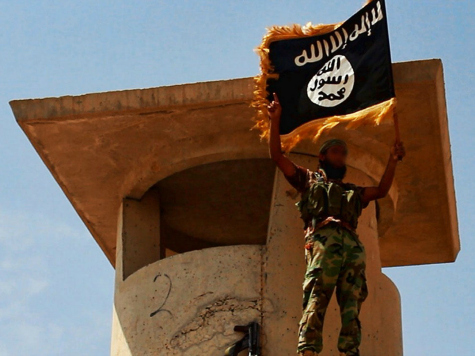As well-publicised bouts of Islamist violence plague the Middle East, concern about Islamic extremism is high among countries with substantial Muslim populations, according to a new survey by the Pew Research Center. Lebanese, Tunisians, Egyptians, Jordanians and Turks are all more worried about the extremist threat than they were a year ago.
The survey covered over 14,000 respondents in 14 countries with significant Muslim populations.
Extremist groups such as al-Qaida, Hamas and Hezbollah have emerged as having a very negative public image, as support for suicide bombing among Muslims has declined over the past decade, according to Pew.
“Few Muslims in most of the countries surveyed say that suicide bombing can often or sometimes be justified against civilian targets in order to defend Islam from its enemies,” Pew announced on its website.
That may come as cold comfort to Israel, where the Palestinian population widely celebrated the recent kidnapping and murder of three Jewish teens by members of Hamas, an Islamist terror organization. The teens, whose bodies were found earlier in the week, were buried yesterday in an emotionally charged ceremony.
While most Palestinians in the Palestinian-administered territories worried about Islamic extremism (65 percent), the concern was much greater in the Gaza Strip (79 percent), controlled by Islamist Hamas, than in the West Bank (57 percent). Some 84 percent of Israelis worry about Islamic extremism, though Jews (87 percent) are much more concerned than Arabs (66 percent).
Lebanon (92 percent) was one of the most anxious countries about the rise of Islamic extremism, the report showed. Rates of concern have also climbed steeply in Jordan (62 percent) and Turkey (50 percent).
Hezbollah and Al-Qaida received negative reviews in all 14 countries surveyed by Pew, while Hamas was seen unfavorably in most countries. A slight majority of Palestinians viewed all three negatively, although fewer than half (47 percent) in the West Bank expressed an unfavorable opinion of Hamas. Overall support from Hamas has declined from 62 percent in 2007 to 35 percent. Palestinian support for al-Qaida declined in the past year from 34 percent to 25 percent.
The most anti-Hezbollah countries were Israel, Turkey, Egypt and Jordan. Negative views of Hezbollah across the Middle East have risen sharply since 2007, the poll revealed.
The greatest opposition to Hamas was found in Israel, Turkey and among Lebanese Christians.
The majority of residents in all the surveyed countries rejected justification for suicide bombings, with support in the Palestinian territories among other areas dropping to a still-frightful 46 percent. Pew noted the terror tactic still enjoyed significant minority support in a handful of countries, with the highest rate of justification in the Palestinian areas.
“As recently as last year, 62 percent of Palestinian Muslims said that suicide bombing was at least sometimes justified, but that support has fallen 16 percentage points since 2013. This tracks with increased negative opinions toward extremist groups among Palestinians in the last year,” reported Pew. “Support is particularly high among Muslims in Gaza (62 percent) versus those in the West Bank (36 percent).”

COMMENTS
Please let us know if you're having issues with commenting.